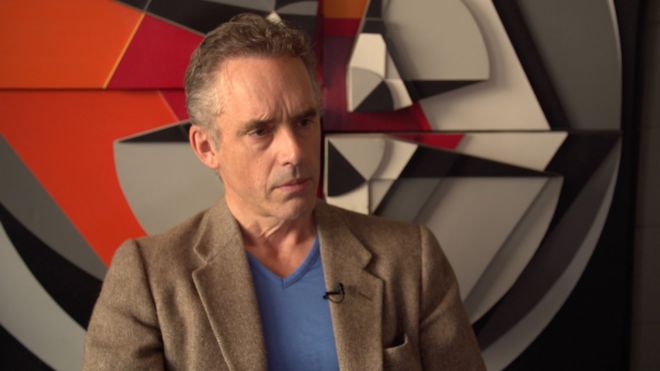https://www.nytimes.com/
January 25, 2018

My friend Tyler Cowen argues that Jordan Peterson is the most influential public intellectual in the Western world right now, and he has a point. Peterson, a University of Toronto psychologist, has found his real home on YouTube, where his videos have attracted something like 40 million views.
In his videos, he analyzes classic and biblical texts, he eviscerates identity politics and political correctness and, most important, he delivers stern fatherly lectures to young men on how to be honorable, upright and self-disciplined — how to grow up and take responsibility for their own lives.
Parents, universities and the elders of society have utterly failed to give many young men realistic and demanding practical wisdom on how to live. Peterson has filled the gap.
But what’s most interesting about Peterson’s popularity, especially the success of his new book, “12 Rules for Life,” is what it says about the state of young men today. The implied readers of his work are men who feel fatherless, solitary, floating in a chaotic moral vacuum, constantly outperformed and humiliated by women, haunted by pain and self-contempt. At some level Peterson is offering assertiveness training to men whom society is trying to turn into emasculated snowflakes.
Peterson gives them a chance to be strong. He inspires their idealism by telling them that life is hard. His worldview begins with the belief that life is essentially a series of ruthless dominance competitions. The strong get the spoils and the weak become meek, defeated, unknown and unloved.
For much of Western history, he argues, Christianity restrained the human tendency toward barbarism. But God died in the 19th century, and Christian dogma and discipline died with him. That gave us the age of ideology, the age of fascism and communism — and with it, Auschwitz, Dachau and the gulag.
Since then we’ve tried another way to pacify the race. Since most conflict is over values, we’ve decided to not have any values. We’ll celebrate relativism and tolerance. We deny the true nature of humanity and naïvely pretend everyone is nice. The upside is we haven’t blown ourselves up; the downside is we live in a world of normlessness, meaninglessness and chaos.
All of life is perched, Peterson continues, on the point between order and chaos. Chaos is the realm without norms and rules. Chaos, he writes, is “the impenetrable darkness of a cave and the accident by the side of the road. It’s the mother grizzly, all compassion to her cubs, who marks you as potential predator and tears you to pieces. Chaos, the eternal feminine, is also the crushing force of sexual selection. Women are choosy maters. … Most men do not meet female human standards.”
Life is suffering, Peterson reiterates. Don’t be fooled by the naïve optimism of progressive ideology. Life is about remorseless struggle and pain. Your instinct is to whine, to play the victim, to seek vengeance.
Peterson tells young men to never do that. Rise above the culture of victimization you see all around you. Stop whining. Don’t blame others or seek revenge. “The individual must conduct his or her life in a manner that requires the rejection of immediate gratification, of natural and perverse desires alike.”
Instead, choose discipline, courage and self-sacrifice. “To stand up straight with your shoulders back is to accept the terrible responsibility of life.” Never lie. Tell your boss what you really think. Be strict with your children. Drop the friends who bring you down. Break free from the needy mother who controls you.
Much of Peterson’s advice sounds to me like vague exhortatory banality. Like Hobbes and Nietzsche before him, he seems to imagine an overly brutalistic universe, nearly without benevolence, beauty, attachment and love. His recipe for self-improvement is solitary, nonrelational, unemotional. I’d say the lives of young men can be improved more through loving attachment than through Peterson’s joyless and graceless calls to self-sacrifice.
But the emphasis on strength of will, the bootstrap, the calls to toughness and self-respect — all of this touches some need in his audience. He doesn’t comfort. He demands: “Stop doing what you know to be wrong. … Say only those things that make you strong. Do only those things that you could speak of with honor.”
And Peterson personifies the strong, courageous virtues he champions. His most recent viral video, with over four million views, is an interview he did with Cathy Newman of Britain’s Channel 4 News. Newman sensed that there was something disruptive to progressive orthodoxy in Peterson’s worldview, but she couldn’t quite put her finger on it. So, as Conor Friedersdorf noted in The Atlantic, she did what a lot of people do in argument these days. Instead of actually listening to Peterson, she just distorted, simplified and restated his views to make them appear offensive and cartoonish.
Peterson calmly and comprehensibly corrected and rebutted her. It is the most devastatingly one-sided media confrontation you will ever see. He reminded me of a young William F. Buckley.
The Peterson way is a harsh way, but it is an idealistic way — and for millions of young men, it turns out to be the perfect antidote to the cocktail of coddling and accusation in which they are raised.
No comments:
Post a Comment